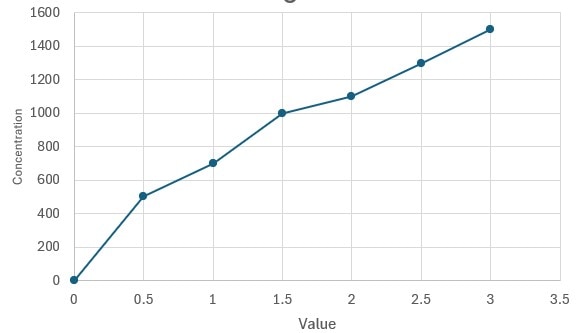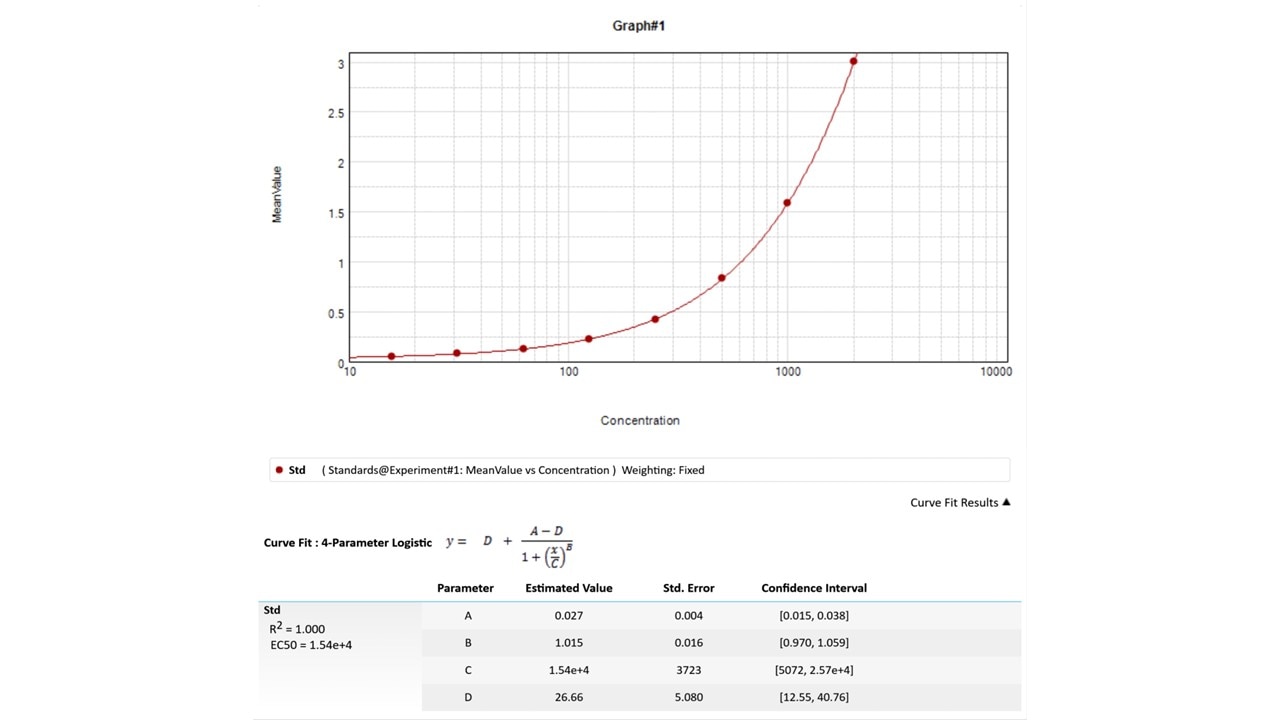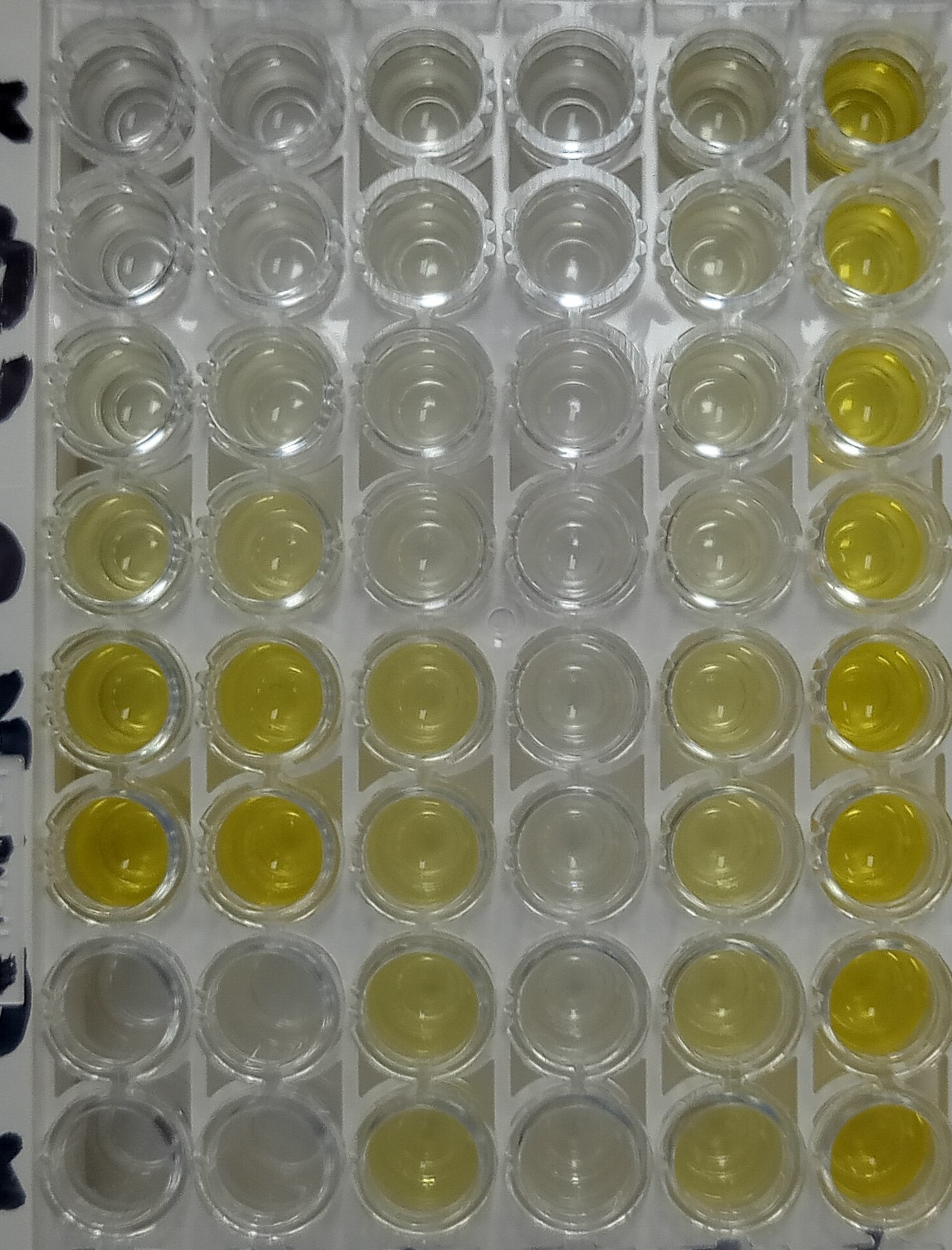Human IFN-alpha All Subtype Quantikine ELISA Kit Summary
Product Summary
Precision
Cell Culture Supernates, Serum, EDTA Plasma, Heparin Plasma
| Intra-Assay Precision | Inter-Assay Precision | |||||
|---|---|---|---|---|---|---|
| Sample | 1 | 2 | 3 | 1 | 2 | 3 |
| n | 20 | 20 | 20 | 20 | 20 | 20 |
| Mean (pg/mL) | 178 | 340 | 698 | 185 | 354 | 737 |
| Standard Deviation | 3.62 | 8.35 | 20.9 | 9.5 | 20.5 | 41 |
| CV% | 2 | 2.5 | 3 | 5.1 | 5.8 | 5.6 |
Recovery
The recovery of human IFN-alpha spiked to levels throughout the range of the assay in various matrices was evaluated.
| Sample Type | Average % Recovery | Range % |
|---|---|---|
| Cell Culture Media (n=4) | 101 | 96-103 |
| EDTA Plasma (n=4) | 92 | 89-96 |
| Heparin Plasma (n=4) | 91 | 88-96 |
| Serum (n=4) | 89 | 83-94 |
Linearity
Scientific Data
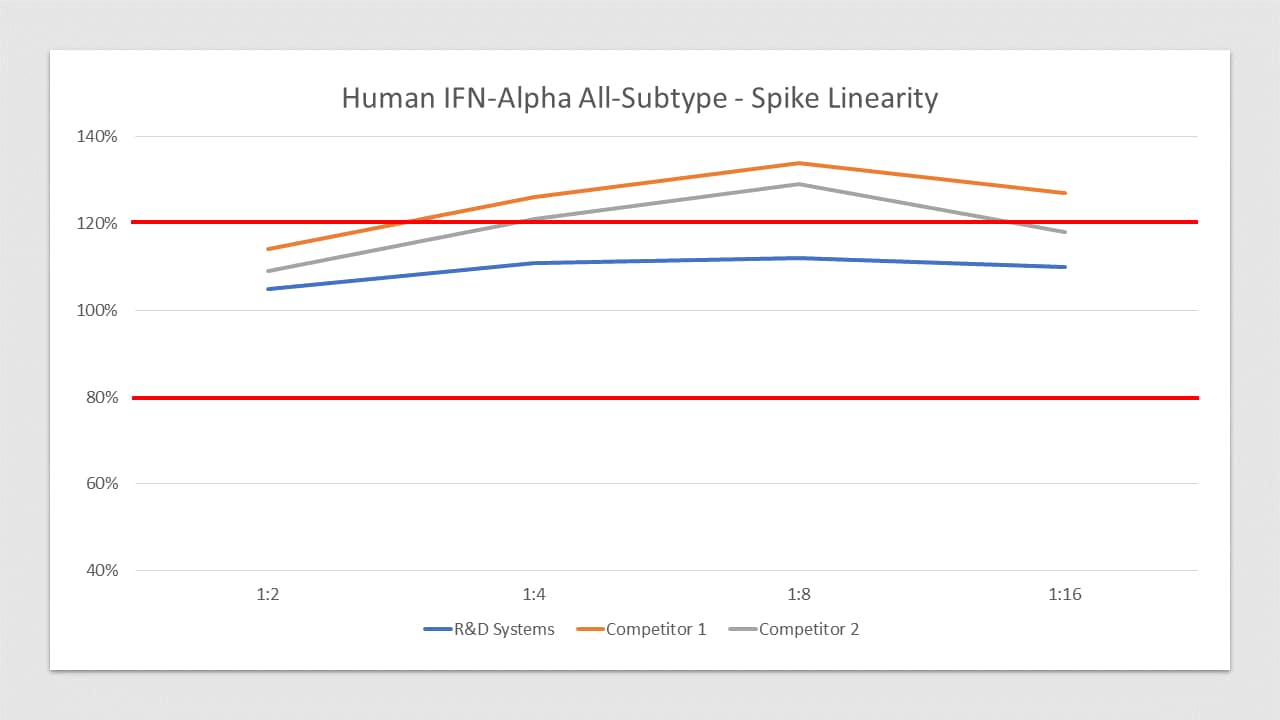 View Larger
View Larger
Human IFN-Alpha All Subtype Quantikine Spiked Linearity Competitor Comparison IFN-alpha is spiked at high concentration in various matrices and diluted with appropriate Calibrator Diluent to produce samples with values within the dynamic range of the assay. R&D Systems linearity is between 105%-112% compared to 114%-134% and 109%-129% for the top competitors.
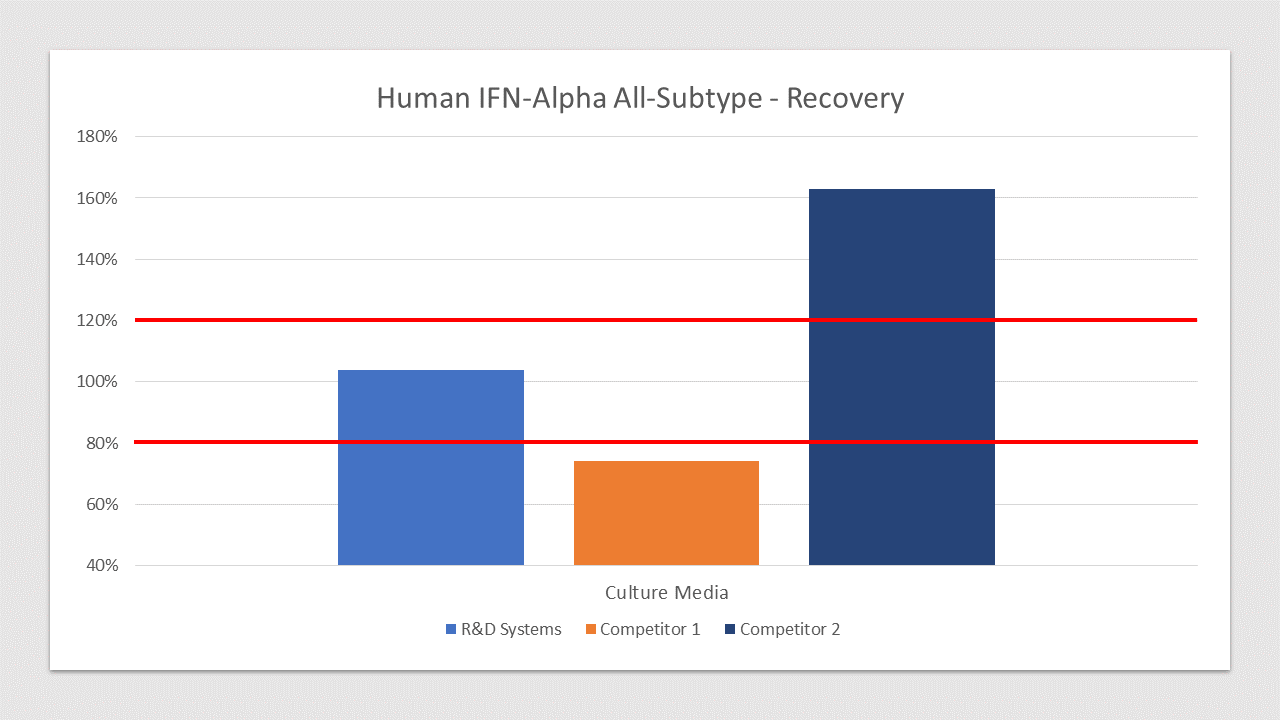 View Larger
View Larger
Human IFN-Alpha All Subtype Spiked Recovery Competitor Comparison IFN-alpha is spiked at three known concentrations throughout the range of the assay and run to measure response of the spiked sample matrix. R&D Systems serum recovery is 104% compared to 74% and 163% for the top competitors.
Product Datasheets
Preparation and Storage
Background: IFN-alpha
There are 3 major classes of interferons (IFNs): Type I, Type II and Type III. Interferon alpha (IFN-alpha ), along with IFN-beta, IFN-δ, IFN-epsilon, IFN-kappa, IFN-omega and IFN-tau are all Type I IFNs (1). The sole type II IFN is IFN-gamma. Type III IFNs include IFN-lambda 1, IFN-lambda 2, IFN-lambda 3 and IFN-lambda 4 (2). As a part of the innate immune response, Type I IFNs are rapidly induced in response to viral nucleic acids such as double stranded DNA or RNA (dsDNA, dsRNA) and single stranded RNA (ssRNA), viral glycoproteins, microbial cytosinephosphate-guanosine (CpG) DNA, DNA damage, and chromosomal instability (3,4).
Citations for Human IFN-alpha All Subtype Quantikine ELISA Kit
R&D Systems personnel manually curate a database that contains references using R&D Systems products. The data collected includes not only links to publications in PubMed, but also provides information about sample types, species, and experimental conditions.
8
Citations: Showing 1 - 8
Filter your results:
Filter by:
-
Complete substitution with modified nucleotides in self-amplifying RNA suppresses the interferon response and increases potency
Authors: McGee, JE;Kirsch, JR;Kenney, D;Cerbo, F;Chavez, EC;Shih, TY;Douam, F;Wong, WW;Grinstaff, MW;
Nature biotechnology
Species: Human
Sample Types: Cell Culture Supernates
-
Transcriptomics analysis highlights potential ways in human pathogenesis in Leishmania braziliensis infected with the viral endosymbiont LRV1
Authors: Felipin, KP;Paloschi, MV;Silva, MDS;Ikenohuchi, YJ;Santana, HM;Setúbal, SDS;Rego, CMA;Lopes, JA;Boeno, CN;Serrath, SN;De Medeiros, EHRT;Pimentel, IF;Oliveira, AER;Cupolillo, E;Cantanhêde, LM;Ferreira, RGM;Zuliani, JP;
PLoS neglected tropical diseases
Species: Human
Sample Types: Cell Culture Supernates
-
Complete substitution with modified nucleotides suppresses the early interferon response and increases the potency of self-amplifying RNA
Authors: McGee, JE;Kirsch, JR;Kenney, D;Chavez, E;Shih, TY;Douam, F;Wong, WW;Grinstaff, MW;
bioRxiv : the preprint server for biology
Species: Human
Sample Types: Cell Culture Supernates
-
The IL-4/IL-13 signaling axis promotes prostatic fibrosis
Authors: Q D'Arcy, M Gharaee-Ke, A Zhilin-Rot, JA Macoska
PLoS ONE, 2022-10-06;17(10):e0275064.
Species: Human
Sample Types: Cell Culture Supernates
-
Mechanisms regulating transitory suppressive activity of neutrophils in newborns: PMNs-MDSCs in newborns
Authors: M Perego, S Fu, Y Cao, A Kossenkov, M Yao, K Alicea-Tor, W Liu, Z Jiang, Z Chen, SY Fuchs, J Zhou, DI Gabrilovic
Oncogene, 2022-06-21;0(0):.
Species: Human
Sample Types: Plasma
-
Epigenetic Regulation of IFI44L Expression in Monocytes Affects the Functions of Monocyte-Derived Dendritic Cells in Systemic Lupus Erythematosus
Authors: S Luo, R Wu, Q Li, G Zhang
Journal of Immunology Research, 2022-05-10;2022(0):4053038.
Species: Human
Sample Types: Serum
-
In Vitro SARS-CoV-2 Infection of Microvascular Endothelial Cells: Effect on Pro-Inflammatory Cytokine and Chemokine Release
Authors: M Dolci, L Signorini, S D'Alessand, F Perego, S Parapini, M Sommariva, D Taramelli, P Ferrante, N Basilico, S Delbue
International Journal of Molecular Sciences, 2022-04-06;23(7):.
Species: Human
Sample Types: Cell Culture Supernates
-
Mitochondria-localised ZNFX1 functions as a dsRNA sensor to initiate antiviral responses through MAVS
Authors: Y Wang, S Yuan, X Jia, Y Ge, T Ling, M Nie, X Lan, S Chen, A Xu
Nat. Cell Biol., 2019-11-04;21(11):1346-1356.
Species: Mouse
Sample Types: Cell Culture Supernates
FAQs
No product specific FAQs exist for this product, however you may
View all ELISA FAQsReviews for Human IFN-alpha All Subtype Quantikine ELISA Kit
Average Rating: 5 (Based on 3 Reviews)
Have you used Human IFN-alpha All Subtype Quantikine ELISA Kit?
Submit a review and receive an Amazon gift card.
$25/€18/£15/$25CAN/¥75 Yuan/¥2500 Yen for a review with an image
$10/€7/£6/$10 CAD/¥70 Yuan/¥1110 Yen for a review without an image
Filter by:
Good dynamic range.
cell supernatent with good linearity (1:2 to 1:16)


